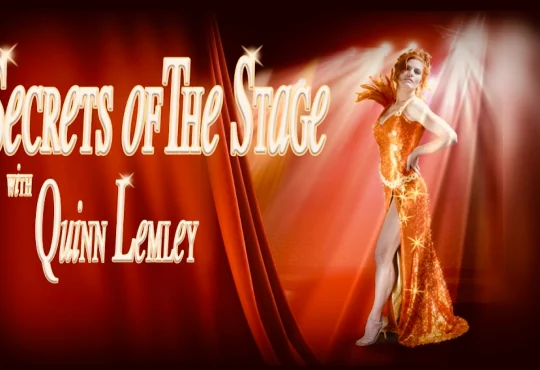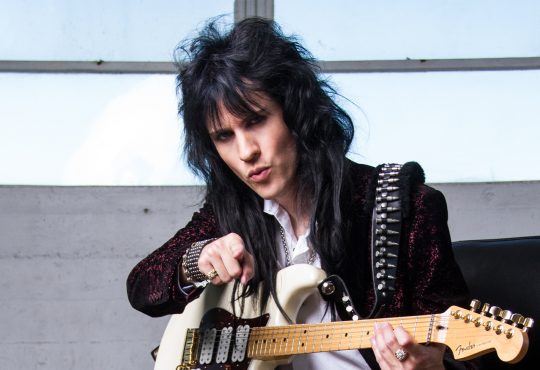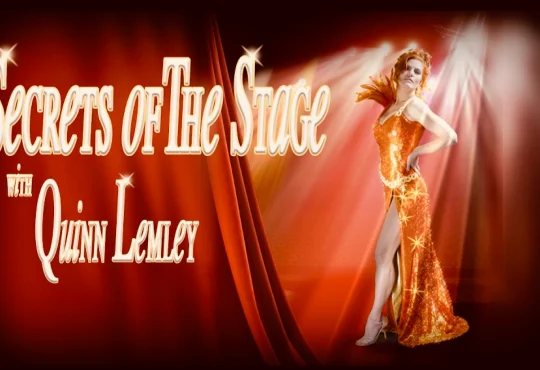Fact-Checking ‘Impeachment: American Crime Story’
Sarah Burgess first encountered details of President Bill Clinton’s sex life as a preteen in the Washington, D.C. suburbs, when they were pulled straight out of independent counsel Ken Starr’s report and splashed across the front page of her hometown newspaper. “My mom worked in the Pentagon, and I was waiting for her to drive me to school,” Burgess recalls. “She had a paper there in the front seat, and I remember being shocked.”
Two decades later, the scandal would shock her all over again.
Burgess grew up to become a playwright — her scathing satire of the private equity world, Dry Powder, debuted in 2016 and was nominated for several awards — before she was approached by Ryan Murphy’s team to write the newest season of the prolific producer’s American Crime Story series, Impeachment. Though her adolescence had equipped her with an appreciation for the motivations of the lawyer class doggy-paddling around the Swamp, she was initially hesitant to take on the project. That is, until her causal research morphed into what she terms an “obsessive fixation” with Linda Tripp — the confidant who recorded Monica Lewinsky as she spilled hours of intimate details about her relationship with Clinton.
“I wanted to write about the insanity of this office friendship almost taking down the president,” Burgess says, “and all of the tangled emotions and frustrations that led to that.”
The show’s 21 episodes trace the intertwined stories of three women: Lewinsky, Tripp, and Paula Jones, the Arkansas state employee who accused Clinton of exposing himself to her when he was the governor. (Over the course of the civil suit, which was settled out of court, Clinton lied when questioned about his relationship with Lewinsky under oath, kicking off a perjury investigation and ultimately leading to his impeachment.) Lewinsky joined the project as an executive producer, giving Burgess invaluable real-life insights as she mapped out the show. (Tripp died of cancer in 2020.) “The story of what happened to Monica was literally the story of someone who did not want this to become public, it became public, and everyone consumed it,” she says. “So for us to do that again without her would be horrible.”
For almost three years, Burgess immersed herself in the 1990s, excavating tidbits of Clinton-era arcana that are sprinkled throughout Impeachment. She spoke with Rolling Stone about the research that went into crafting major plot points, bit players whose profiles have only grown — Brett Kavanaugh, Ann Coulter, George Conway — and figures who’ve retreated into the recesses of history, like White House volunteer Kathleen Willey and Clinton’s personal secretary Betty Currie.
Your parents worked at the Pentagon at the same time as Linda Tripp — did they know each other?
The Pentagon is actually the largest office building in the United States. It’s like a small city. They had this thing in the Nineties called “Take Your Daughter to Work Day” — which is hilarious, like: That’s going to fix everything! — I went a couple of times with my mom to her office. She is not really a feminist and is somewhat hostile to those ideas, and yet all these men would have to salute her because she was a commander. It was just a fascinating experience for me. But my parents did not know her [or Moncia]. They easily may have passed them in the hall. They did work there at that exact time.
How did you dive into developing Linda Tripp’s character?
Linda is this classic frustrated D.C. bureaucrat, the woman you see on the Metro who basically becomes a piece of the furniture, and feels that, and knows it. I became obsessed with that emotional landscape, and the anger that I think can build up in women. Linda was quoted in The New Yorker in 1998 saying she saw Hillary use the public restroom in the West Wing. “Mrs. Bush would rather have been catheterized than use the public ladies’ restroom,” she said. And that just said so much to me. That word choice is so unnecessary. There’s the knowingness that Linda clearly had, the judgment on Hillary, but also the delight in seeing Hillary Clinton, one of the most famous people in the world at your office, [using the public bathroom]. I just I felt a real affinity for Linda’s intelligence, which must have been bottled up and frustrated.
This is someone who clearly took her job seriously. I think, if a lot of us are honest with ourselves, having a job that’s tied to a big institution — especially the White House, the most prestigious place there is — that does mean something to us, and we delude ourselves into pretending it doesn’t matter. Clearly, a significant part of her identity was broken the day that she lost that position.
One of my favorite details about Linda Tripp, the person, is that she went on to own a Christmas shop. There are some bread crumbs sprinkled throughout the show about that.
Well, you’ll see even more of that!
Does the Christmas shop still exist?
One hundred percent. It still exists in Middleburg, Virginia. Linda remarried after the crisis — it’s actually a very sweet story: Deiter, a childhood sweetheart from Germany, and Linda re-connected, and he ran the store with Linda, and I think still runs it. It’s called the Christmas Sleigh.
Was it hard for you to remain sympathetic to Linda after developing a working relationship with Monica Lewinsky on the show?
I have a tendency to really love characters, even though they may do something that is reprehensible or questionable, or follow their instincts and to bad places, so I was able to compartmentalize this terrible event. And Monica was a very generous producer and really understood that I had to write from multiple points of view, which includes not only Linda, but Bill — people who took actions that blew up her life.
I understand Monica was very involved in conversations about the script — what was that like? Were there moments when you were at odds?
Look, you always end up at odds with producers. That’s part of the writer’s life: You never take every note. There were times where Monica and I had to have intense, sometimes one-on-one conversations about why I would have to condense two events into one. I don’t want to speak for her, but [I assume] it is a very intense experience for someone to create a story, with all of these many threads that the show has, out of your own life experience.
Is there a specific example that springs to mind?
In Episode Two, she’s been told she will return to the White House after [Clinton’s] reelection; he’s reelected, and he doesn’t call her immediately. In my initial draft, I had her pretty bereft that she hadn’t heard about her job [right away]. And Monica was like, ‘No, no, no — multiple weeks passed, and only then, just like in real life, I realized they weren’t calling me.’ As a writer, you don’t tend to write that in. But that collapsing of events was, to be honest, a relatively intense conversation. I did revise it — I added a real detail that she wanted, which is that she was planning to go on a trip and that Linda Tripp told her to stay home [in case Bill Clinton called].
Did Tripp have some inside information that Clinton was going to call Lewinsky that weekend?
I don’t think Linda had inside info, because she wasn’t that connected at a high level — much to her chagrin. But, according to Monica, Linda would talk about having a really good intuition, that it was a family trait, and Linda did tell her, perhaps just guessing or assuming: He will call. And it just worked out that way. It’s a weird real-life thing that you would never [typically] write in drama.
The third episode starts with an employee at the CBS gift shop in L.A. berating his coworker — and the employee turns out to be Matt Drudge. I didn’t know Drudge worked at the CBS gift shop around the time he started the Drudge Report and broke the story that cracked the whole scandal wide open: the news that Newsweek killed a story about Lewinsky and Clinton.
I spoke with my producer about this a lot. We both just loved the fact that, for someone who wants to be seen, and to matter, and wants to be this very important journalist like he’s seen in movies, the fact that Drudge works at the gift shop in the CBS studio lot — like, not on a show, not producing something, not an actor; he’s just in proximity to [stardom] — felt so right. Someone who just loved the media, and wills and works himself into a really important place in this culture where he’s the one who breaks that story.
Drudge is one of many people in this story who wants to be in the arena, who wants to be in the mix, and who makes himself into something. That desperation to be seen, and to matter — it motivates a lot of characters in the show. There’s an unspoken part of American politics and democracy: this ambition to just be somebody. It’s not just a show business thing, it’s also something that happens in Washington, in the media.
And, as a playwright, I’m obsessed with how people talk. And Drudge’s odd way of speaking, like Linda Tripp’s odd way of speaking, really, really, really grabbed me. I gave Billy Eichner the craziest lines of dialogue because I got really excited about how unusual his speech pattern is. It’s willful and intentional. I just love how odd it is.
Do you think the Clinton scandal would have broken in the news if it was left in the hands of a traditional media?
Because of the involvement of [Ken] Starr, I think eventually this would have come out in the Washington Post. But I think it is very meaningful that this is the first story of the Internet age. And the fact that Drudge had this fig leaf of Oh, I’m just reporting on the fact that this story was killed, that did allow things to accelerate for sure.
There are all of these minor characters who pop up in the show who went on to become major cultural figures: Brett Kavanaugh, George Conway, Ann Coulter. As you researched the time period, were there stories you came across and people involved that surprised you?
There were these Georgetown parties of conservatives in the Nineties that inspired a scene in Episode Three — I remember reading Dinesh D’Souza was there, and David Brooks, and Christopher Hitchens would pass through. I’ve always been fascinated by the politically ambitious lawyer class in D.C. — these young, thirtysomething lawyers, some of them [at] corporate firms, some at white-shoe firms, some becoming media personalities — just having the time of their lives in D.C. and feeling like there are almost no consequences.
The fact that Conway and Coulter were friends and were able to sort of participate in this conspiracy, along with James Moody [Linda Tripp’s lawyer] — they get the tapes from him and listen to them secretly — that really grabbed me. And, like everybody, I was of course very interested in the fact that Brett Kavanaugh worked as an [Office of Independent Counsel] lawyer off-and-on, and worked at Ken Starr’s law firm. Both Kavanaugh and Starr were these types of conservative lawyers who were being groomed or prepared for the Supreme Court, and, frankly, the incredible success of that operation has always been fascinating to me.
Jake Tapper also makes an appearance later in the season — he went on a date with Monica Lewinsky right before the scandal broke. Was Monica supportive of including that detail?
Yes, in fact, my original draft of the episode didn’t include that scene, but Monica liked the idea of me adding it in. I think the audience might hope that Monica can move on with her life, so to show her taking those steps — being out in the world, meeting new people, meeting a guy — felt like an important side to show. And it’s so Washington, D.C., that it’s Jake Tapper. It’s such a surreal story because of how many people, as you say, have gone on to become so prominent.
But then there are these critical characters who have faded from history — Kathleen Willey, who alleged that Clinton assaulted her; Betty Currie, his secretary. How did you think about weaving them into the narrative?
As someone who obsessively researched Betty Currie, it seems to me Betty Currie made intentional choices to become a private figure. She was certainly dragged into real prominence, forced to testify before Ken Starr’s grand jury — there are images of her being dragged through a media circus. Betty Currie could have written a tell-all book about Bill Clinton and did not do that. She was pulled into an impossible situation, and has been quite private and discreet since this event.
The Kathleen Willey story is a really sad one. Kathleen Willey did do some media around the impeachment of Bill Clinton, but her story just never seemed to get a ton of traction. It seems like it was a story that a lot of people did not want to hear. And I think Kathleen Willey’s story becomes quite sad as a result. I don’t know if you saw this Washington Post piece about her two years ago — she started a GoFundMe [to prevent her house from being foreclosed on] around the time of [Kavanaugh’s] confirmation hearings, and conservatives, who [had the] idea of sexual assault brought up to them by the Kavanugh hearings, directed their sympathy to Kathleen Willey as opposed to Christine Blasey Ford. But as you say, she sort of faded away. I feel for Kathleen Willey.
Annaleigh Ashburn’s turn as Paula Jones is so heartbreaking. How did you go about breaking that storyline for the show? Was there a specific detail you came across in your research that unlocked that for you?
Paula’s story is a morally complicated one. I believe something happened. She did feel aggrieved about it. She told multiple people that week. By today’s standards, that should have been covered in the mainstream press, and taken very seriously, but it wasn’t. I believe perhaps it would be today. At the same time, her lawsuit moves forward for these morally complicated reasons, [including], I think, her husband’s out-of-control emotions about it, and eventually a right wing apparatus sort of takes hold. It is a complicated and unfortunate story.
I watched the real CPAC press conference that she did. I find her just so affecting, and I feel for her, and she speaks so well about her excitement in getting a state job in Arkansas. And then what immediately happened? That’s the whole story right there: You feel excited and important to get this position, and then you end up in a situation that completely disrupts it, completely undermines the idea that you will be taken seriously at all as a professional.
The depiction of Paula Jones made me think about the way MeToo cases have been handled today. Did doing a deep dive into this era make you think, “Wow, we’ve come such a long way since the Nineties,” or do you think things really haven’t changed much at all?
The rise of social media has given the opportunity for some people to have a voice and a platform that they wouldn’t have had at all in the late Nineties, and there is robust journalism now around investigating sexual assault, and we’ve seen politicians resign because of sexual harassment and sexual assault claims.
I believe if this happened again, it would happen in much the same way. The way some of the mainstream publications handled it — there were op-eds in The New York Times that referred to Monica in completely inappropriate ways, for instance — I don’t think that would happen again.
But I don’t think political tribalism has gotten better in the United States. And that motivated a lot of the reaction to Monica Lewinsky. She was blamed for the actions of the president. She was blamed for this impeachment, for making him a vulnerable politician. And that, unfortunately, has not gone away.







